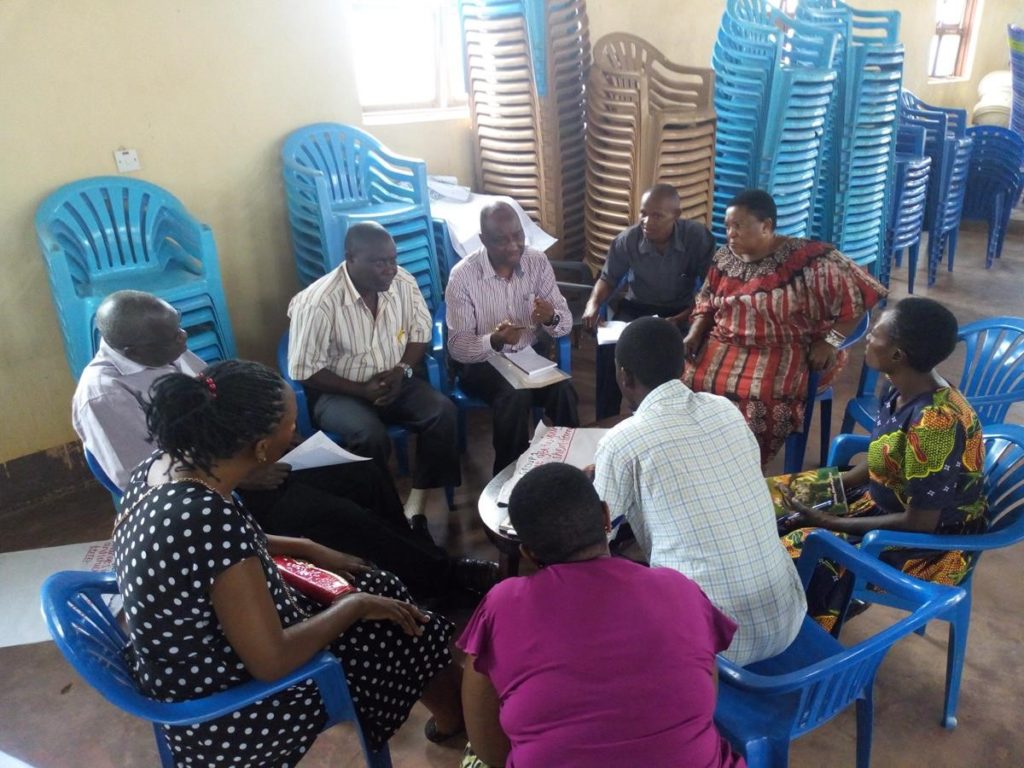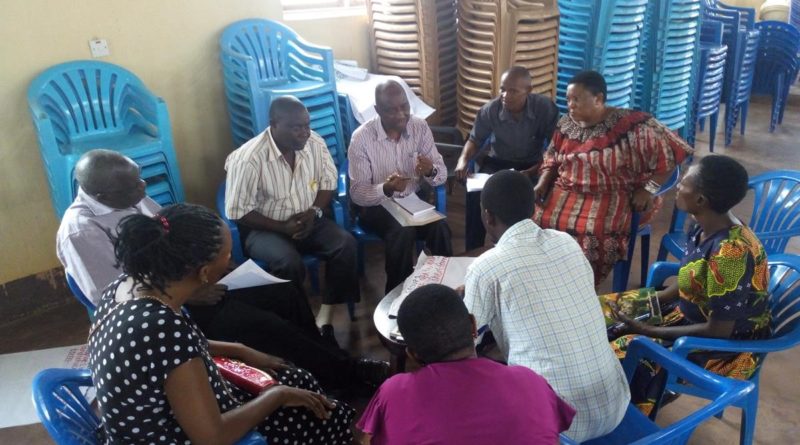Multiple actions have been developed by community members in Kampala to address their sustainability problems

Figure 1. A group of participants Kawaala community during the back-casting exercise
At the end of October 2018 the local transition team in Kampala has been very active organizing three ‘agenda setting’ transition arena meetings with participants from multiple communities (such as Makerere, Mukubira, Bwaise and Kawaala) in informal settlements in Kampala.
The local transition teams started the arena meetings by sharing some of the most important insights from previous meetings such as the vision narratives previously developed by the participants. The back-casting methodology was then used to support the participants to identify short, medium and long term actions.
The meetings aimed at supporting participants to develop short, medium and long term actions that would address the already identified local problems. The majority of the short-term actions developed by the participants were associated to educational and awareness raising activities related to water, sanitation and waste management. Some groups of participants discussed how to teach community members correct hygiene practices, proper construction of toilet facilities and practices of maintenance and protection of water sources. In one of the groups in Makerere and Mukubira zones, participants discussed to run a water harvesting plan at household level and to start lobbying with institutions like KCCA and NWSC to increase sensitization activities at community level related to water and sanitation best practices.
During the meeting with participants from Makerere and Mukubira zones, one of the developed long term actions consisted of creating a rewarding system for individuals who would carry on good practices in protecting and preserving water sources.
Other major actions developed in all organized meetings were related to ensure the enforcement of laws related to water, waste and sanitation management. In Bwaise, for example, the implementation of fines related to poor toilet usage and construction were discussed.
Additionally, participants in all areas spoke about the importance of mobilizing community members and setting up active groups aiming to carry on sensitization activities and to ensure the maintenance of services over time. For example, in Makerere and Mukubira zones, one group of participants would like to form a water committee, while in Bwaise zone the group of participants focusing on the problem of sanitation had the idea to form community led groups to prevent unplanned toilet construction.
Other important actions included the creation of Savings and Credit Cooperatives (SACCOs) for supporting the local circular economy by producing products from waste materials.

Figure 2. A group of participants from Makerere and Mukubira zones are brainstorming about the actions to be developed in their communities.
The results of the ‘agenda setting’ arena meetings show that the implementation of facilities and services alone do not contribute to solve local water, sanitation and waste management problems. Rather, a combination of actions is needed for addressing the rooted and interlinked problems. New organizational and governance capacities at both community and institutional level need to be developed in order to ensure the maintenance of facilities over time. The change of practices and behaviors related to water, sanitation and waste management need to be constantly supported by organizing awareness raising and education activities, by mobilizing and empowering community members, such as through active groups as well as by ensuring the reinforcement of laws. The collaboration and dialogue between local community members, institutional organisations, NGOs and private companies play a key role in the implementation of these actions and will be further explored in the next meetings taking place in January.

